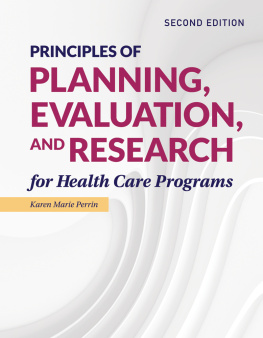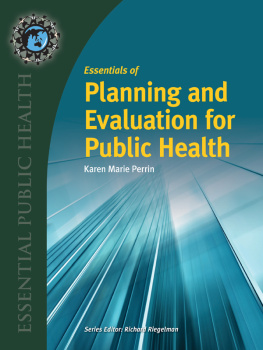Contents

World Headquarters
Jones & Bartlett Learning
5 Wall Street
Burlington, MA 01803
978-443-5000
www.jblearning.com
Jones & Bartlett Learning books and products are available through most bookstores and online booksellers. To contact Jones & Bartlett Learning directly, call 800-832-0034, fax 978-443-8000, or visit our website, www.jblearning.com.
Substantial discounts on bulk quantities of Jones & Bartlett Learning publications are available to corporations, professional associations, and other qualified organizations. For details and specific discount information, contact the special sales department at Jones & Bartlett Learning via the above contact information or send an email to .
Copyright 2022 by Jones & Bartlett Learning, LLC, an Ascend Learning Company
All rights reserved. No part of the material protected by this copyright may be reproduced or utilized in any form, electronic or mechanical, including photocopying, recording, or by any information storage and retrieval system, without written permission from the copyright owner.
The content, statements, views, and opinions herein are the sole expression of the respective authors and not that of Jones & Bartlett Learning, LLC. Reference herein to any specific commercial product, process, or service by trade name, trademark, manufacturer, or otherwise does not constitute or imply its endorsement or recommendation by Jones & Bartlett Learning, LLC and such reference shall not be used for advertising or product endorsement purposes. All trademarks displayed are the trademarks of the parties noted herein. Principles of Planning, Evaluation, and Research for Health Care Programs, Second Edition is an independent publication and has not been authorized, sponsored, or otherwise approved by the owners of the trademarks or service marks referenced in this product.
There may be images in this book that feature models; these models do not necessarily endorse, represent, or participate in the activities represented in the images. Any screenshots in this product are for educational and instructive purposes only. Any individuals and scenarios featured in the case studies throughout this product may be real or fictitious, but are used for instructional purposes only.
This publication is designed to provide accurate and authoritative information in regard to the Subject Matter covered. It is sold with the understanding that the publisher is not engaged in rendering legal, accounting, or other professional service. If legal advice or other expert assistance is required, the service of a competent professional person should be sought.
20394-3
Production Credits
VP, Product Management: Amanda Martin
Director of Product Management: Laura Pagluica
Product Manager: Sophie Fleck Teague
Content Strategist: Sara Bempkins
Manager, Project Management: Kristen Rogers
Project Specialist: John Fuller
Senior Marketing Manager: Susanne Walker
Senior Digital Project Specialist: Angela Dooley
Production Services Manager: Colleen Lamy
VP, Manufacturing and Inventory Control: Therese Connell
Composition: Exela Technologies
Cover Design: Michael ODonnell
Media Development Editor: Faith Brosnan
Rights Specialist: Maria Leon Maimone
Project Specialist, Navigate: John Fuller
Cover Image (Title Page, Chapter Opener): Max Krasnov/Shutterstock
Printing and Binding: Sheridan Books
Library of Congress Cataloging-in-Publication Data
Names: Perrin, Karen M., author.
Title: Principles of planning, evaluation, and research for health care programs / Karen (Kay) Perrin.
Other titles: Principles of evaluation and research for health care programs Description: Second edition. | Burlington, MA : Jones & Bartlett Learning, [2021] | Preceded by Principles of evaluation and research for health care programs / Karen (Kay) M. Perrin. 2015. | Includes bibliographical references and index. |
Identifiers: LCCN 2020011645 | ISBN 9781284203912 (paperback)
Subjects: MESH: Health Services Researchmethods | Research Design | Program Evaluation | Data Collectionmethods
Classification: LCC RA409 | NLM W 84.3 | DDC 362.1072/3dc23
LC record available at https://lccn.loc.gov/2020011645
6048
Printed in the United States of America
24 23 22 21 20 10 9 8 7 6 5 4 3 2 1
To my students

Max Krasnov/Shutterstock
Brief Contents

Max Krasnov/Shutterstock
Contents

Mad Dog/Shutterstock
Preface
This text was written for students enrolled in an introductory course related to research or evaluation. The chapters are in a sequential order that forms the foundation for the knowledge needed to understand basic evaluation or research projects. This text is not intended to achieve complete understanding or proficiency in the complex subjects of health science evaluation and research. However, the chapters do provide information needed to review published literature, collect primary data, analyze data using basic statistics, and present results in written or verbal formats for the intended audience.
The first three chapters set the stage for program planning, evaluation, and research. Chapter 1 defines terms and concepts that should be understood prior to a discussion about various program planning models. Chapter 2 explores the differences and similarities of evaluation and research, and delves into how to review literature and develop research questions or goals and objectives that will be addressed in a study. Chapter 3 is divided into two sections. The first section describes various types of budgets and provides examples to practice basic skills; budget justifications are also introduced. The second section defines the types of cost analyses and explains how each type is used.
Chapter 4 introduces ethics, a core element in evaluation and research. Ethical issues must be considered during the development phase of all projects. Chapter 5 explores determinants of health, such as health disparities and access to health care. If they do not pay attention to social determinants, evaluators and researchers risk missing key elements in the lives of their target audience that may influence health outcomes.
The next several chapters present the tools needed for planning and conducting evaluation programs and research studies. Chapter 6 introduces various types of theories and models, along with examples from the current literature of how those theories and models have been used as the framework for project development. The list of theories and models presented in this chapter is not intended to be comprehensive, but rather serves as an introduction to commonly encountered frameworks. Once the research questions, evaluation goals, and appropriate theory are determined, it is time to explore the topic of study design, including reliability and validity, elements of design, and sampling from the population. Chapter 7 defines the concepts of reliability and validity as well as random and systematic errors. The chapter ends with a detailed description of how to conduct a pilot test and why such tests are essential. Chapter 8 introduces basic elements of design, including the difference between basic and applied research, variables, group assignment, constructs, and operational definitions. The three basic types of design (true experimental, quasi-experimental, and nonexperimental) are then defined, with examples being provided to enhance understanding. Chapter 9 describes terms related to populations and samples. Three main topics are covered: sample size considerations, probability and nonprobability samples, and sampling bias. Each topic deserves important consideration when determining the sample size needed for any evaluation or research project.










